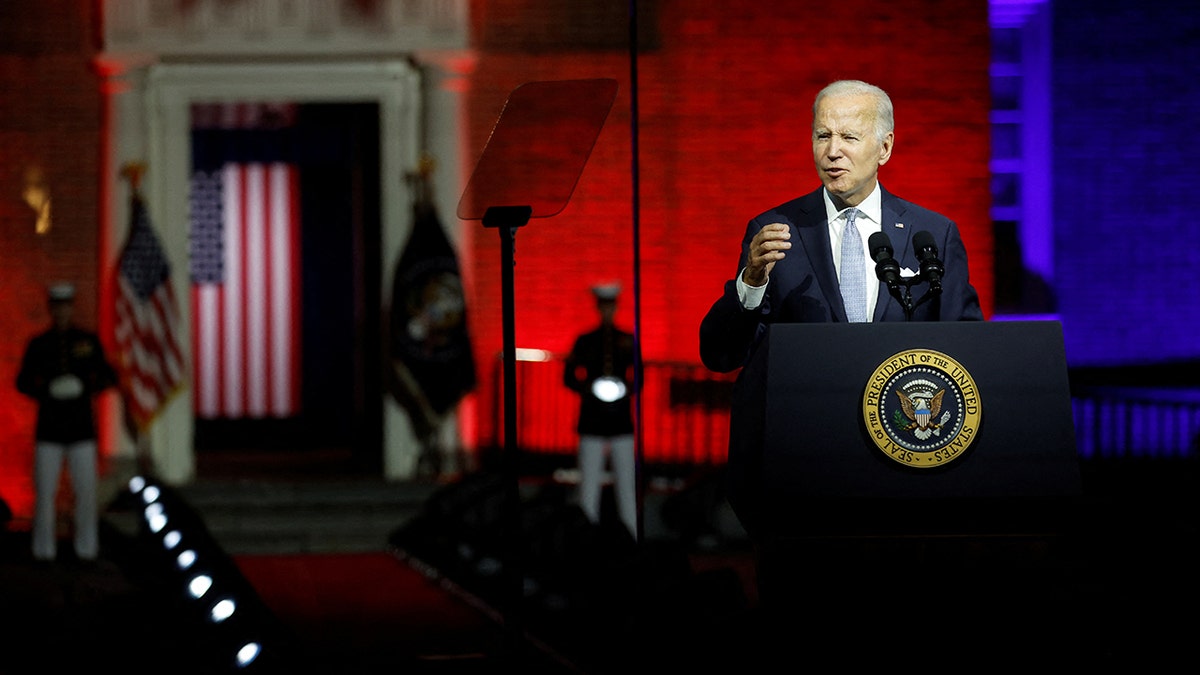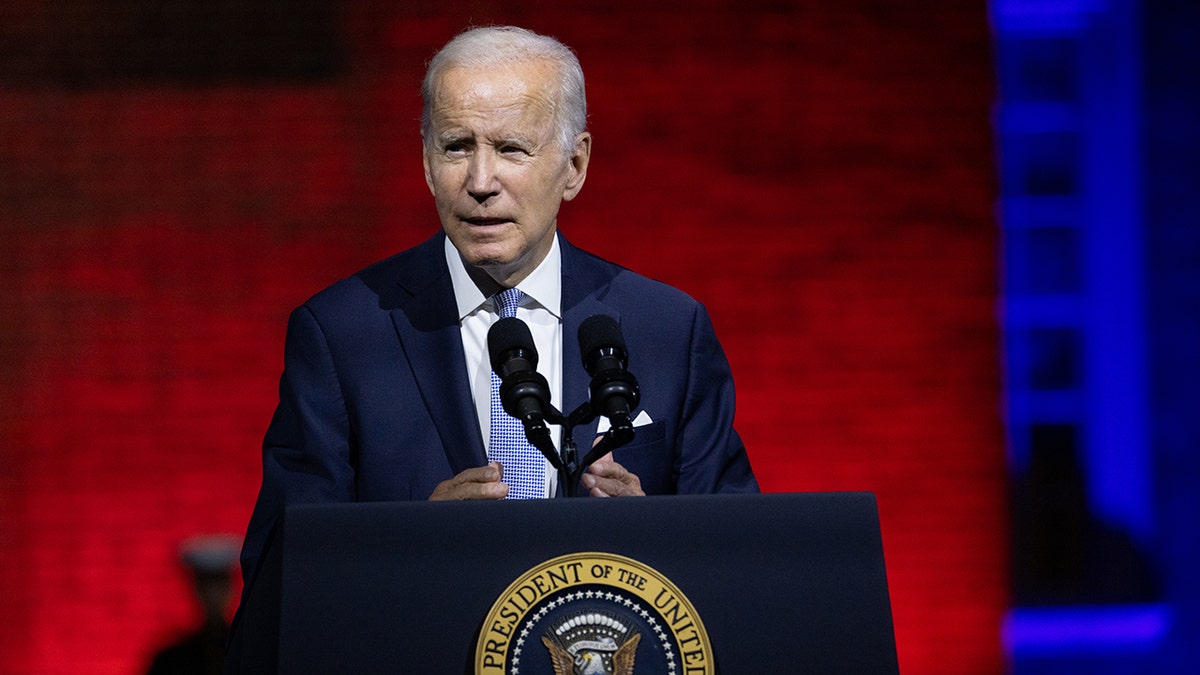Biden unleashes on 'MAGA Republicans,' calls them threat to democracy
Alexandria Hoff reports on White House's defense of Biden rhetoric
Set aside the creepy red lighting, the curious pre-Labor Day timing and the callous attempt to condemn half of America in a "basket of deplorables" that would make Hillary Clinton proud. The better question is why President Joe Biden decided to step into the national conversation at all when he fired the opening political salvo of the midterm elections in Philadelphia last night.
After all, the prevailing narrative heading into the last official weekend of summer was one of Democratic momentum. Gas prices were "down" to $3.80. Inflation had been "tamed" to 8.5 percent. Senate Democrats had resuscitated their legislative agenda and reeled off a series of wins on Capitol Hill. Questions were swirling around the ability of Republicans to win back the Senate, or even the House of Representatives.
All these "wins" took place with Biden largely out of sight. His approval rating, at one point cratering to a dreary 31 percent in July, had ticked up to a more respectable yet still unimpressive 40 percent, according to the same survey from Quinnipiac University.
If you buy the above narrative, there was little reason for Biden to step into the limelight for a primetime address, even if it was ignored by the major TV networks. The first rule of politics is not interrupting your opponent when they are on the ropes. If things are going swimmingly for the Democrats and the GOP is truly reeling, no sense in interrupting that momentum.

President Joe Biden, protected by bulletproof glass, delivers remarks on what he calls the "continued battle for the Soul of the Nation" in front of Independence Hall at Independence National Historical Park, Philadelphia, U.S., September 1, 2022. (REUTERS/Jonathan Ernst)
Above all, Biden’s tone was a reminder of his failure to bring the country together, ironically the billing of last night’s event: healing the "soul of America."
If his themes sounded familiar, they are. When Biden launched his third bid for the White House in Philadelphia in May 2019, he castigated his predecessor as, the "divider in chief." Two and a half years later as the sitting president, he spent the week labeling his political opponents "semi fascists" seeking, "to take this country backwards."
In fact, you would be forgiven for thinking you were listening to an upstart challenger rather than the sitting president whose party controls both chambers of Congress.
But there Biden was, on the eve of a long weekend when many Americans were focused on the beach or college football. His speech and its tone suggest his party’s political standing is not as optimal as has been suggested.
The true tell will take place when voters head to the polls in nine short weeks to render judgment on the first half of the Biden administration.
Rather than repair his standing with persuadable voters on the economic issues they care most about, Biden is re-engaging his base by re-framing the upcoming election as a choice between him and his predecessor. There was no olive branch, little to offer the 76 million Americans who voted for his opponent two years ago. There were no concrete solutions, no road map to solve the problems he was laying out.
CLICK HERE TO GET THE OPINION NEWSLETTER
It's clear Team Biden has decided they need a bogey man to campaign against rather than selling a positive vision of their own accomplishments. Stoking fears about democracy must be an easier sell than a victory lap on infrastructure spending.

Philadelphia, USA- September 1st: President Joe Biden gives a speech on protecting American democracy in front of Independence Hall in Philadelphia, Pennsylvania on September 1st, 2022. (Photo by Nathan Posner/Anadolu Agency via Getty Images) (Photo by Nathan Posner/Anadolu Agency via Getty Images)
Biden’s speech might have been targeted toward a 2024 audience, but it didn’t do much to help the Democrats on a ballot in 2022, many of who have squirmed when faced with uncomfortable questions about campaigning alongside the unpopular commander-in-chief. Unlike Biden, those facing voters in November do not have the luxury of focus grouping campaign themes from the White House podium.
CLICK HERE TO GET THE FOX NEWS APP
They’re hearing from voters less worried about the soul of the nation and more about the toll on their everyday lives under Biden’s policies.
Try as he might to re-focus attention elsewhere, those are the stakes as this year’s campaign season kicks off.












































